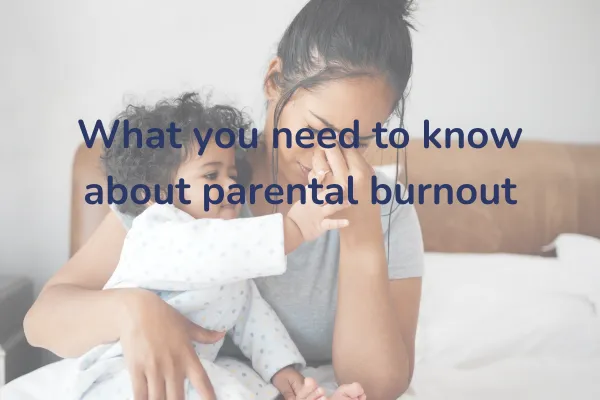
Parental Burnout—How to Spot It and What to Do
Parental Burnout: How to Spot It and What to Do About It
Being a parent is one of life’s greatest joys—but it’s also one of its biggest challenges. Sleepless nights, constant demands, and the pressure to “do it all” can leave even the most loving mums and dads feeling utterly depleted. If you’re reading this and nodding along, you’re not alone—parental burnout is real, and it’s more common than you might think.
What is Parental Burnout?
Parental burnout is a state of physical, emotional, and mental exhaustion caused by prolonged stress related to parenting. It’s not simply feeling tired after a rough night; it’s a deep, ongoing weariness that doesn’t go away with one good sleep. Burnout can affect anyone, but it’s especially common among new parents who are adjusting to the overwhelming demands of caring for a baby or young child.
Signs and Symptoms
Recognising burnout early is key to preventing it from taking over your life. Here are some common signs to look out for:
Chronic Exhaustion: You feel drained all the time, even when you manage to get some rest. Everyday tasks feel like climbing a mountain.
Irritability and Mood Swings: You find yourself snapping at your partner or children over small things, or feeling unusually emotional and tearful.
Detachment: You may feel disconnected from your child or family, and struggle to enjoy moments you used to cherish.
Loss of Patience: Little things that never used to bother you now feel overwhelming.
Difficulty Concentrating: Your mind feels foggy, and simple decisions become hard.
Withdrawal: You avoid social situations or stop reaching out to friends and family.
Feelings of Inadequacy: You might feel like you’re not a “good enough” parent, or that everyone else is coping better than you.
Why Does Parental Burnout Happen?
Burnout can happen for many reasons, and it’s rarely due to a lack of love or effort. Some common causes include:
Sleep Deprivation: Night waking, early mornings, and broken sleep add up quickly.
High Expectations: Social media and societal pressures can make parents feel they need to be perfect.
Lack of Support: Parenting can feel isolating, especially if you don’t have family or community nearby.
Unrealistic Standards: Trying to “do it all” without help is a recipe for exhaustion.
Challenging Temperaments: Some children have higher needs, making routines and rest harder to achieve.
What Can You Do If You’re Experiencing Burnout?
First, know this: you are not failing, and you are not alone. Many parents experience burnout at some point. Here are some gentle, practical steps you can take:
Acknowledge How You Feel: It’s okay to admit you’re struggling. Naming your feelings is the first step to getting support.
Ask for Help: Reach out to your partner, friends, or a professional sleep coach. Even small breaks can make a big difference.
Prioritise Rest: Let go of non-essential tasks. If the laundry waits another day, that’s okay. Rest is not a luxury—it’s a necessity.
Set Boundaries: Say no to extra commitments, and don’t be afraid to ask visitors to wait until you’re ready.
Practice Self-Compassion: Speak to yourself as you would to a friend. You’re doing your best, and that’s enough.
Connect with Others: Sometimes just talking to another parent who “gets it” can lift a huge weight.
Consider Professional Support: If burnout feels overwhelming or lasts for weeks, reaching out to a sleep consultant or mental health professional can help you find a way forward.
The Gentle Approach
At Sleep Nanny®, I work with families every day who are feeling the weight of burnout. My approach is gentle, evidence-based, and always tailored to your unique family. There’s no “cry it out,” no judgement, just support, understanding, and proven methods to help you and your little one find restful sleep once and for all!
If you’re feeling overwhelmed, please know you don’t have to do this alone. Help is always available, and things can—and do—get better.
Ready to take the next step?
Book a free assessment call and let’s talk about how I can help your family find rest and joy again.